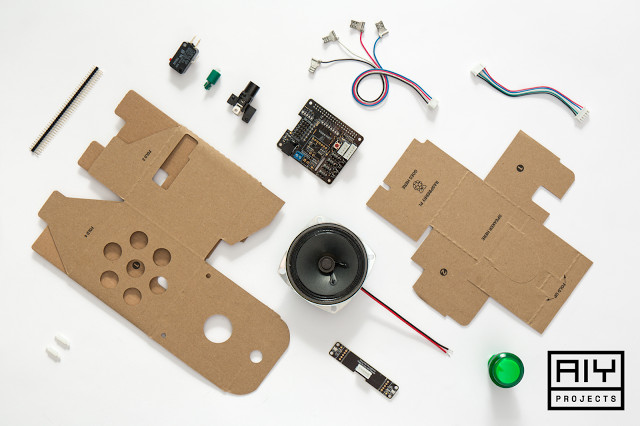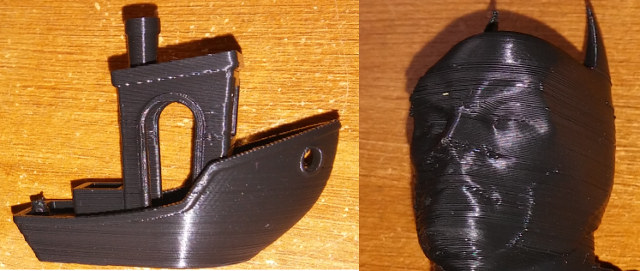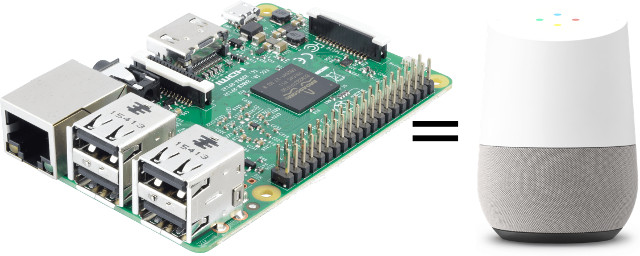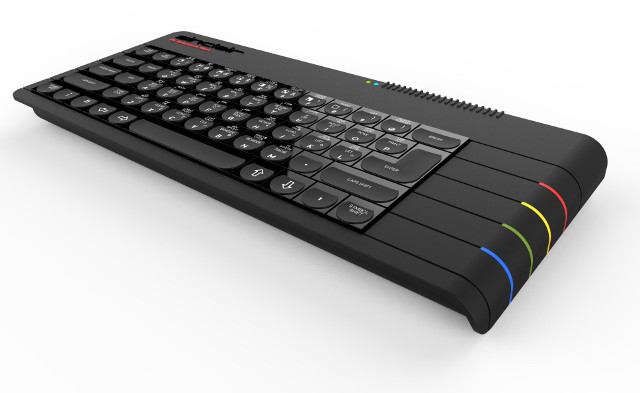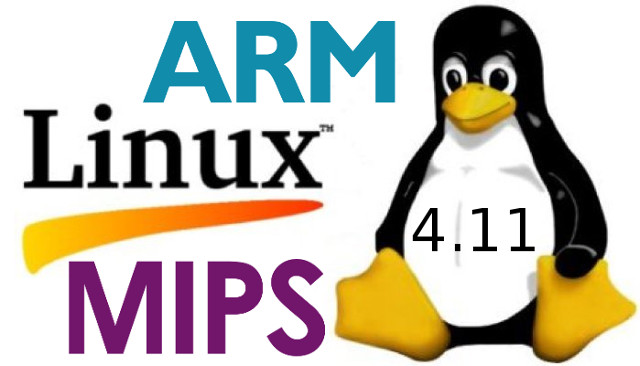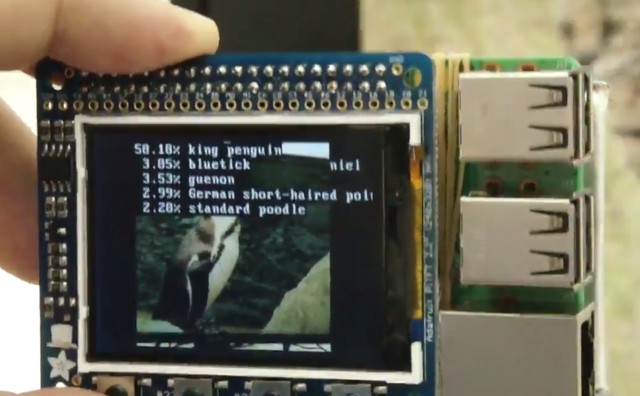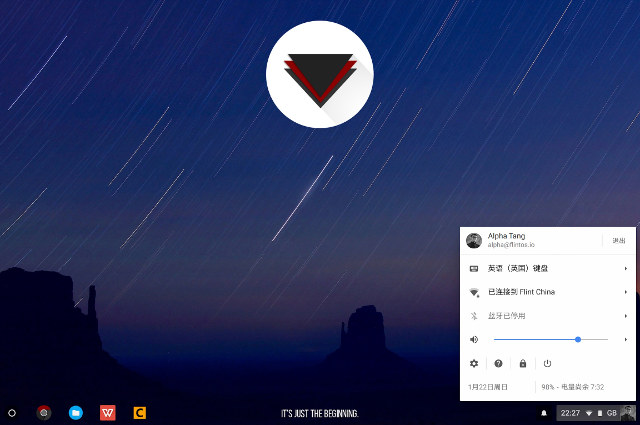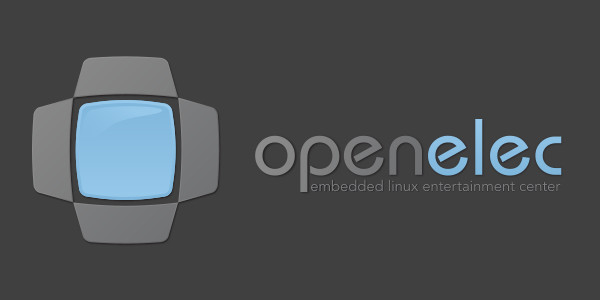We’ve just reported about the preview release of Google Assistant SDK that works on the Raspberry Pi 3, and other boards with a microphone, speakers, and access to Internet. The Raspberry Pi foundation and Google have now made it even easier, as they launched AIY Projects Voice Kit with a Google Voice HAT, a speaker, a stereo microphone Voice HAT board, a button, a few cables, and a cardboard case. You’ll just need to add your own Raspberry Pi 3, follow the instructions to assemble kits, load and setup the software. Once this is all done, you’ll be able to press the top button, asking anything you want to Google Voice, including the weather. Price? Sort of free, as it comes with MagPi 57 magazine, where you’ll also find detailed instructions for the kit. Google AIY Projects got its name from a mix between (DIY) and artificial intelligence (AI), and […]
Creality CR-10 3D Printer Review – Part 2: Tips & Tricks, Octoprint, and Craftware
Hey Karl again with part 2 of my 3D printing experience with the CR-10, after the first part describing CR-10 3D printer setup and first prints. The intent is to share my experiences with the CR-10 with the perspective from a noob. I have to say if you are hard heading like I am, and do a lot of research but don’t fully listen to what you are reading, you are going to waste a lot of filament and time. I spent a couple hours a day for weeks with trial and error and watching the printer and how it works adjusting about a billion settings and testing. I am hoping this will help any current or future CR-10 owner speed up the learning curve. Measuring Filament Diameter The single biggest thing to improve my print quality I found was measuring the filament. I read about this several times but […]
Google Assistant SDK Turns Your Raspberry Pi 3 into Google Home
Google Home allows you to select music, control your home automation system and more with voice commands, but now you can do the same with a Raspberry Pi 3 as Google released a developer preview (alpha v1) of the Google Assistant API that works on Raspberry Pi 3, and other development boards running Debian or Ubuntu. Functionalities are limited right now, with RPC API and Python sample code, but it only works with English language, and features such as timers & alarm, playing music, news, or podcasts, and precise location are not supported. Location is determined using your IP address only, and if you’re using some third party services / products such as Uber or Hue, you’ll need an actual Google Home device for initial setup. Google has provided instructions to use Google Assistant SDK with Raspberry Pi 3 board. First you’ll need a USB microphone ($5.99 on Amazon), and […]
ZX Spectrum Next Retro Keyboard PC Relies on Xilinx FPGA, Raspberry Pi Zero “Accelerator” Board (Crowdfunding)
ZX Spectrum keyboard computer was launched in April 1982 in the United Kingdom, and 35 years later, a team of developers has now been working on ZX Spectrum Next somewhat resuscitating ZX Spectrum by emulating Z80 processor in a Xilinx FPGA, using an optional Raspberry Pi Zero board as an accelerator, and adding some modern features like HDMI output and WiFi. While the case is only a 3D rendering for now, they have a working board prototype with the following specifications: FPGA – Xilinx Spartan-6 FGPA emulating Z80 processor in 3.5Mhz and 7Mhz modes System Memory – 512KB RAM (expandable to 1.5MB internally and 2.5MB externally) Storage – SD Card slot, with DivMMC compatible protocol used in the original ZX Spectrum Video Hardware sprites, 256 colours mode, Timex 8×1 mode etc. Output: RGB, VGA, HDMI Audio – 3x AY-3-8912 audio chips with stereo output + FM sound Networking – Optional […]
Linux 4.11 Release – Main Changes, ARM & MIPS Architecture
Linus Torvalds has just released Linux 4.11: So after that extra week with an rc8, things were pretty calm, and I’m much happier releasing a final 4.11 now. We still had various smaller fixes the last week, but nothing that made me go “hmm..”. Shortlog appended for people who want to peruse the details, but it’s a mix all over, with about half being drivers (networking dominates, but some sound fixlets too), with the rest being some arch updates, generic networking, and filesystem (nfs[d]) fixes. But it’s all really small, which is what I like to see the last week of the release cycle. And with this, the merge window is obviously open. I already have two pull request for 4.12 in my inbox, I expect that overnight I’ll get a lot more. Linux 4.10 added Virtual GPU support, perf c2c’ tool, improved writeback management, a faster initial WiFi connection […]
GPU Accelerated Object Recognition on Raspberry Pi 3 & Raspberry Pi Zero
You’ve probably already seen one or more object recognition demos, where a system equipped with a camera detects the type of object using deep learning algorithms either locally or in the cloud. It’s for example used in autonomous cars to detect pedestrian, pets, other cars and so on. Kochi Nakamura and his team have developed software based on GoogleNet deep neural network with a a 1000-class image classification model running on Raspberry Pi Zero and Raspberry Pi 3 and leveraging the VideoCore IV GPU found in Broadcom BCM283x processor in order to detect objects faster than with the CPU, more exactly about 3 times faster than using the four Cortex A53 cores in RPi 3. They just connected a battery, a display, and the official Raspberry Pi camera to the Raspberry Pi boards to be able to recognize various objects and animals. The first demo is with Raspberry Pi Zero. […]
Flint OS is a Chromium OS Build for Raspberry Pi & Firefly-RK3288 Boards
Chromium OS for SBC aimed to bring Chromium operating systems to low cost development boards such as the Raspberry Pi 3 board, but the website is now down, and the developer announced he had stopped working on it several months ago due the hardware limitations of the Raspberry Pi 3 board. But others decided it was still worth the effort, and created Flint Innovation company (based in UK/China) to develop Flint OS, a build of Chromium OS with optimizations for Raspberry Pi 3 and Firefly-RK3288 boards with more boards likely coming soon. The developers also provide an x86 image, but after asking more details, it turns out they only changed the boot splash screen for now on the x86 image, with most of the early work done on Raspberry Pi board: At this moment our public Flint OS releases are still pretty much vanilla Chromium OS (we changed the boot […]
OpenELEC 8.0 Released with WeTek Play 2 & Hub, and Raspberry Pi Zero W Support
In recent months, I’ve written more about LibreELEC, a fork of OpenELEC, but the latter project is still being worked on, and OpenELEC 8.0 has been released adding builds for WeTek Play 2 & WeTek Hub TV boxes, as well as Raspberry Pi Zero W board, and upgrading to Kodi 17.1. and newer packages such as Linux 4.9 and ffmpeg 3.2. The developers also removed some unused or dropped features such as HFS and HFS+ filesystem, iSCSI, NFS/NBD/iSCSI network boot, and LIRC. X11 AMDGPU, ATI (Radeon) and Intel GPU driver driver has been replaced by X11 Modesettings GPU driver. They also updated some drivers & firmware files for WLAN and DVB, as well as update Nvidia Legacy driver to xf86-video-nvidia-340 (VDPAU only supported now). You can download or update OpenELEC 8.0, not only for the new WeTek and Raspberry Pi platforms, but for also x86 64-bit images for Intel & […]


